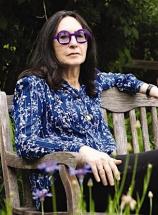1974: A Personal History
Review
1974: A Personal History
I've enjoyed reading Francine Prose's fiction for many years, as well as her shorter form literary criticism and her wonderful guide to the craft of writing (and reading), READING LIKE A WRITER. Prose's new work is her first foray into memoir territory. It’s both strikingly intimate and self-reflective, as well as a commentary on a particular time and place.
That time, as you might gather from the title, is 1974, and the place is, for the most part, San Francisco. I live in the Bay Area, and the San Francisco of 50 years ago that Prose describes feels almost entirely alien to the city as it is now --- the kind of place where artists, writers, activists and eccentrics could pursue their passions while paying cheap rent for apartments with a garden and still be able to live on "avocado sandwiches on San Francisco sourdough bread with mayo, black pepper and alfalfa sprouts." About the only thing that feels familiar in Prose's descriptions of a city both run-down and alive with energy is the weather, which "felt like a personal insult."
"Prose's new work is her first foray into memoir territory. It’s both strikingly intimate and self-reflective, as well as a commentary on a particular time and place."
But all that was beginning to change, as Prose gradually realizes in the context of a brief relationship with Tony Russo. Along with Daniel Ellsberg, Russo, a former RAND Corporation employee, was one of the whistleblowers responsible for leaking the so-called Pentagon Papers, the documents that showed that the Johnson administration, in particular, had repeatedly lied to the American public about the objectives of the war in Vietnam. Russo was a bona fide antiwar hero when Prose met him through a mutual friend. He also was quite a bit older than her, so when he began to show interest in talking with her --- mostly over long meandering drives through the streets of San Francisco --- she was flattered by his attention.
It turns out that both Prose and Russo were in San Francisco to write books. For Prose, who then was in her late 20s, it was to pen her third novel. Russo was working on material for his memoirs. Over the course of the book, readers learn that Prose also was there to escape her brief failed marriage, as well as to recover from an apparent breakdown during which she became increasingly unable to leave her Cambridge apartment. Talking with Russo became a distraction, a validation and a way to delay the inevitability of dealing with the rest of her life. But when she returned to the East Coast and reunited with Russo in New York City a few months later, she began to see him in a new light. He was less a figure to be idolized and more someone to be frightened of, or at least frightened for.
The year 1974 was, in Prose's reckoning, a turning point, not only for herself but also for the country, and her reunion with Russo threw this change into high relief: "It was 1974. You didn’t sit on the floor the way people did in the 1960s. It was 1974. Freedom only went so far…. You were dealing with a product, not a plan to save the world, not a way to make amends for your role in prolonging a war. You were part of a chain producing a product, like sneakers or potatoes." The Tony Russo she depicts was a product of his time, soon out of step in the post-war landscape where antiwar activists had to get regular jobs, put on grown-up clothes, and get on with the business of being responsible consumers.
Even if the milieu of Prose's memoir seems like a distant memory --- 50 years on from the events she recounts in its pages --- the trajectory she draws from the idealistic, free-wheeling activism of the years before 1974 and the commodification of, well, everything we see in 2024 is clear. Its message is soberingly relevant, even today.
Reviewed by Norah Piehl on June 21, 2024
1974: A Personal History
- Publication Date: June 3, 2025
- Genres: Memoir, Nonfiction
- Paperback: 272 pages
- Publisher: Harper Perennial
- ISBN-10: 006331410X
- ISBN-13: 9780063314108




